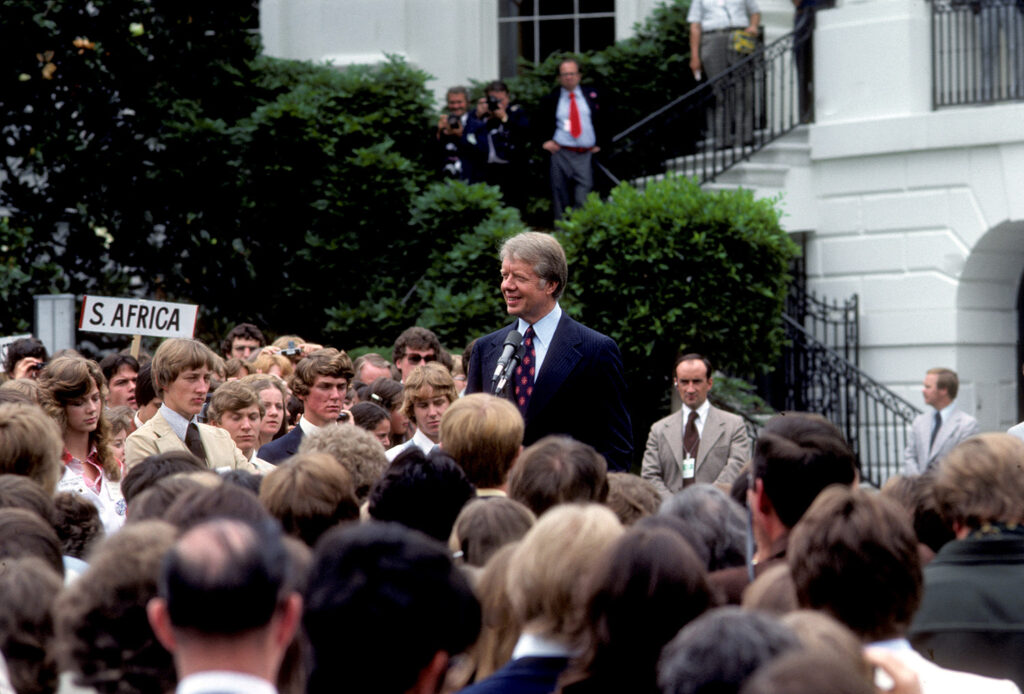
Former President Jimmy Carter, who died Dec. 29 at the age of 100, was familiar with electric cooperatives from an early age.
He grew up on a 360-acre farm outside Plains, Georgia, that was electrified by the local co-op, Sumter EMC in nearby Americus, when he was a teenager. His father, Earl, helped organize it and later served as a board member.
Carter, even in his world-hopping post-presidential years, kept up with the co-op, which now serves more than 21,000 meters. Longtime CEO Ted McMillan, now retired, said back in 2015 that Carter would occasionally call him with a question about the electric service at a family property or to discuss a co-op policy.
During his improbable run for the White House in 1976, Carter spoke at an NRECA annual meeting in Anaheim, California. He recognized the association’s political clout and knew it could help deliver the rural votes he needed to get elected.
When his schedule precluded speaking at an NRECA gathering once in office, he welcomed General Manager Bob Partridge and a cameraman to the White House to shoot a video of him delivering a message that could be shown at the event.
In June 1978, he greeted the Electric Cooperative Youth Tour participants on the south lawn of the White House. After telling them about the hardships of growing up on an unelectrified farm, he said this:
“I think the best day in my life, the one that I remember most vividly—with the possible exception of my wedding day—was the day they turned the lights on in our house. The bringing of the rural electric program to the farms of our nation made it possible for us to stretch our hearts and stretch our minds to encompass public involvement in affairs that would not have been possible without the rural electric program.”
The Carter farm is in the small community of Archer, about two and a half miles outside Plains. Earl and Lillian purchased the farm in 1927, the year Jimmy turned 3.
In 1937, Earl pitched in with Bishop William Dexter Johnson of the Archer A.M.E. church to sign up members to help get Sumter EMC off the ground. Johnson insisted that every residence, tenant-house, barn and even some chicken houses be wired.
Carter, in his 1975 campaign autobiography, “Why Not the Best,” remembered Johnson, who founded a vocational school for Black people, “as the most prestigious person in the community.”
Frank Gallant is a contributing writer for NRECA.